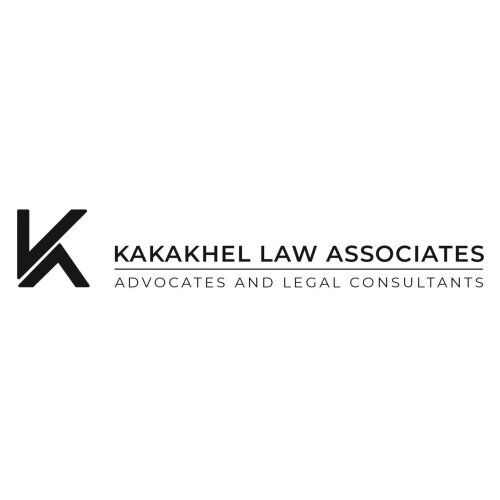Best Landlord & Tenant Lawyers in Peshawar
Share your needs with us, get contacted by law firms.
Free. Takes 2 min.
Free Guide to Hiring a Real Estate Lawyer
List of the best lawyers in Peshawar, Pakistan
About Landlord & Tenant Law in Peshawar, Pakistan
Peshawar, like the rest of Pakistan, is governed by a framework of laws pertaining to the relationship between landlords and tenants. These laws cover various aspects of renting property, including lease agreements, rent control, eviction, maintenance responsibilities, and conflict resolution. The primary legislation in this area is the West Pakistan Urban Rent Restriction Ordinance, 1959, and subsequent amendments that these laws have seen over the years. These regulations aim to balance the rights and responsibilities of both landlords and tenants, preventing exploitation and ensuring fair treatment for all parties involved.
Why You May Need a Lawyer
There are multiple circumstances under which both landlords and tenants might seek legal assistance in Peshawar. For landlords, issues such as drafting lease agreements, handling tenant disputes, or pursuing eviction through legal channels may necessitate legal supervision. Tenants, on the other hand, may require legal help if they face eviction, experience rental contract violations, or encounter unresponsive landlords when repairs or maintenance are needed. Legal advice can also be critical when interpreting the local laws to ensure compliance and protect one's rights.
Local Laws Overview
Understanding local laws is crucial for both landlords and tenants. In Peshawar, the West Pakistan Urban Rent Restriction Ordinance lays out specific provisions relating to tenancy agreements, rental increases, and eviction procedures. Notably, this law provides mechanisms for controlling rent prices, requiring landlords to obtain permission before increasing rents. Additionally, the law prescribes conditions under which a tenant can be legally evicted, ensuring protection against arbitrary eviction. Landlords must also maintain the property to a habitable standard, underscoring their responsibility toward the upkeep of the rental premises.
Frequently Asked Questions
What are the basic rights of a tenant in Peshawar?
Tenants in Peshawar have the right to a safe and habitable living environment, protection against illegal eviction, and a fair rent as stipulated in their agreement.
Can a landlord increase my rent arbitrarily?
No, landlords are subject to the West Pakistan Urban Rent Restriction Ordinance, which requires approval for any rent increases through appropriate channels.
What is the procedure for eviction?
Eviction requires a formal notice and must comply with the legal grounds as specified in local tenancy laws. It often requires a court's involvement to proceed lawfully.
What should I do if my landlord is not conducting necessary repairs?
You can formally request the landlord to undertake repairs. If neglected, you may seek legal remedies through the rent tribunal or relevant legal bodies.
Is a written rental agreement necessary?
While verbal agreements are not uncommon, a written contract is strongly recommended to avoid disputes and provide clear terms of the tenancy.
How are disputes between landlords and tenants resolved?
Disputes can be addressed through negotiation, but if unresolved, they may be escalated to a Rent Controller or the relevant judicial authority.
What happens if a tenant wants to leave before the lease term ends?
Early termination of a lease typically requires mutual consent, and it may involve penalties unless specified otherwise in the contractual terms.
How can I legally recover unpaid rent?
Landlords can file a case with the rent tribunal to seek recovery of unpaid rent following the legal procedures prescribed in the local laws.
What should tenants do if facing illegal eviction?
Tenants should immediately seek legal advice and may file a petition against illegal eviction through the court to protect their residency rights.
Are security deposits common, and how are they handled?
Yes, security deposits are common and should be outlined in the lease agreement. Typically, they are refundable, provided no damages are caused to the property.
Additional Resources
Anyone seeking help in matters related to tenancy law in Peshawar can consult the following resources:
- The Peshawar Rent Tribunal for dispute resolution
- The District Bar Association for legal referrals
- Local legal aid organizations for guidance and assistance
- The Ministry of Housing and Works for policy and legislation updates
Next Steps
If you require legal assistance in landlord and tenant issues, consider taking the following steps:
- Consult a lawyer specializing in property law to understand your rights and obligations.
- Gather all relevant documentation, including lease agreements, rent receipts, and correspondence, to provide a clear picture of your situation.
- Contact the local Rent Tribunal or legal aid services if you cannot afford private legal representation.
- Stay informed about your rights and any legal changes that may affect your tenancy agreement.
Lawzana helps you find the best lawyers and law firms in Peshawar through a curated and pre-screened list of qualified legal professionals. Our platform offers rankings and detailed profiles of attorneys and law firms, allowing you to compare based on practice areas, including Landlord & Tenant, experience, and client feedback.
Each profile includes a description of the firm's areas of practice, client reviews, team members and partners, year of establishment, spoken languages, office locations, contact information, social media presence, and any published articles or resources. Most firms on our platform speak English and are experienced in both local and international legal matters.
Get a quote from top-rated law firms in Peshawar, Pakistan — quickly, securely, and without unnecessary hassle.
Disclaimer:
The information provided on this page is for general informational purposes only and does not constitute legal advice. While we strive to ensure the accuracy and relevance of the content, legal information may change over time, and interpretations of the law can vary. You should always consult with a qualified legal professional for advice specific to your situation.
We disclaim all liability for actions taken or not taken based on the content of this page. If you believe any information is incorrect or outdated, please contact us, and we will review and update it where appropriate.








